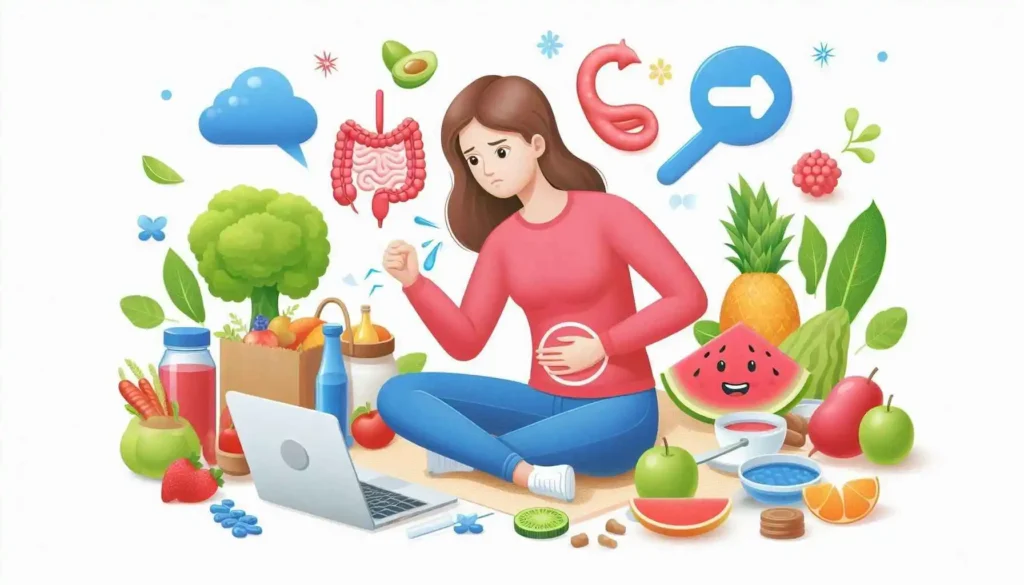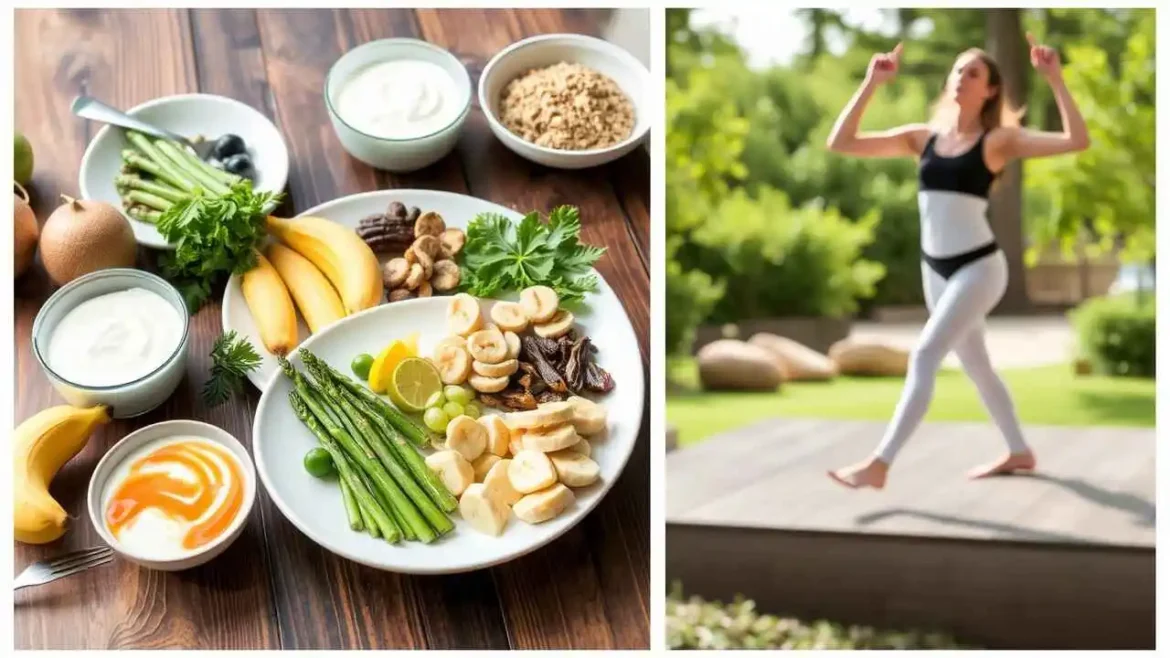
Food and Lifestyle Habits to Prevent Bloating and Improve Gut Health
Ah, bloating. Most of us know that uncomfortable, distended feeling all too well. It’s like our stomach has suddenly decided to inflate, leaving us feeling full, gassy, and sometimes even achy. While occasional bloating is a normal part of digestion, especially after a large meal or eating certain foods, frequent or persistent bloating can be truly disruptive to our daily lives and overall well-being.
Bloating primarily happens due to trapped gas in the digestive tract, or sometimes due to fluid retention. It can stem from a variety of causes, including what we eat, how we eat, and even our lifestyle habits. The good news is that for many of us, adopting some simple, consistent daily habits can make a significant difference in preventing or minimizing this uncomfortable symptom. We’ve explored various strategies, and through research and shared experiences, we’ve found that being mindful of our routines is key.
In this article, we’ll delve into specific daily habits that we can incorporate to keep that ballooning sensation at bay. We’ll look at adjustments to our diet, how we consume our food and drink, and broader lifestyle choices that impact our digestive health.
“Take care of your body. It’s the only place you have to live.” – Jim Rohn
This quote resonates deeply when we think about how our daily choices affect our physical comfort. Preventing bloating is one way we can actively care for our digestive system, ensuring it functions more smoothly and making us feel better in our own skin. It’s about making small, conscious decisions throughout the day that add up to significant positive changes.
Let’s explore these habits together.
Mindful Eating: The Foundation of Prevention
One of the most impactful areas we can focus on is how we eat. It’s not just about what we eat, but the process itself.
- Slow Down and Chew Thoroughly: This is perhaps one of the simplest yet most effective habits. When we rush through meals, we tend to swallow more air, which can lead to bloating. Chewing our food properly also breaks it down into smaller particles, making it easier for digestive enzymes to work and reducing the load on our system.
- How to practice: Try putting your fork down between bites. Consciously chew each mouthful multiple times until it’s almost liquid before swallowing. Aim to make meal times relaxed, not a race.
- Avoid Talking While Eating: Similar to eating quickly, talking with your mouth full or engaging in intense conversation while chewing increases the amount of air we swallow.
- Don’t Overeat: Consuming very large meals can overwhelm our digestive system, leading to fermentation and gas production as food sits longer. Eating smaller, more frequent meals throughout the day can be gentler.
- Mindful Hydration (But Not While Eating): Staying hydrated is crucial for preventing constipation, a common cause of bloating. However, drinking large amounts of liquid with your meal can dilute digestive enzymes. We find it helpful to sip water throughout the day and limit drinks during the meal itself, maybe having a small glass before or waiting 30 minutes after eating.
Smart Dietary Choices
While individual triggers vary, certain foods and food groups are more likely to cause gas and bloating in many people. Becoming aware of these and adjusting our intake is a key daily habit.
- Identify and Limit Trigger Foods: Pay attention to how your body reacts after eating different foods. Common culprits include:
- Certain vegetables: Broccoli, cauliflower, Brussels sprouts, cabbage, onions, garlic. (These contain complex carbohydrates that can be difficult for some to digest, leading to fermentation).
- Legumes: Beans, lentils. (High in indigestible fibers and complex sugars that produce gas during breakdown).
- Dairy products: Especially for those who are lactose intolerant. (Undigested lactose ferments in the gut).
- Artificial sweeteners: Sorbitol, mannitol, xylitol, erythritol found in sugar-free products. (Can cause digestive distress and act as laxatives in some).
- High-fat foods: They slow down stomach emptying.
- Salty foods: Lead to water retention, which can feel like bloating.
- Manage Fiber Intake: Fiber is vital for digestive health and preventing constipation, but suddenly increasing high-fiber foods can cause temporary bloating and gas. We’ve learned that increasing fiber gradually and ensuring adequate water intake alongside it helps the system adjust more smoothly.
- Be Wary of Carbonation and Gum: Carbonated drinks (soda, sparkling water) directly introduce gas into your digestive system. Chewing gum or sucking on hard candies can also cause you to swallow more air. Making a daily habit of choosing still water over fizzy drinks and avoiding gum can help significantly.
- Consider Probiotics and Prebiotics: Incorporating foods rich in probiotics (like yogurt with live cultures, kefir, sauerkraut) or considering a probiotic supplement can help balance gut bacteria, potentially reducing gas production. Prebiotic foods (like bananas, onions, garlic – ironically, also trigger foods for some) nourish beneficial gut bacteria. It’s a balance we need to find individually.
To illustrate some food choices, here’s a simple table comparing some common triggers with potentially gentler options:
| Potential Bloat Causing Foods/Drinks | Potential Bloat Friendly Options |
| Broccoli, Cabbage, Brussels Sprouts | Cooked Carrots, Zucchini, Spinach, Cucumber |
| Beans, Lentils | Quinoa, Rice, Cooked Meats, Eggs |
| Soda, Sparkling Water | Still Water, Herbal Teas (like peppermint, ginger) |
| Chewing Gum | Sip Water |
| Onions, Garlic (raw) | Onion/Garlic Powder (in moderation), Chives |
| Large Portions of Food | Smaller, More Frequent Meals |
| Artificial Sweeteners | Small amounts of Natural Sweeteners (honey, maple syrup) or Unsweetened Options |
| Fried & Greasy Foods | Baked, Steamed, or Grilled Foods |
Note: Individual tolerance varies greatly. This table provides common examples, but personal experimentation is key.





